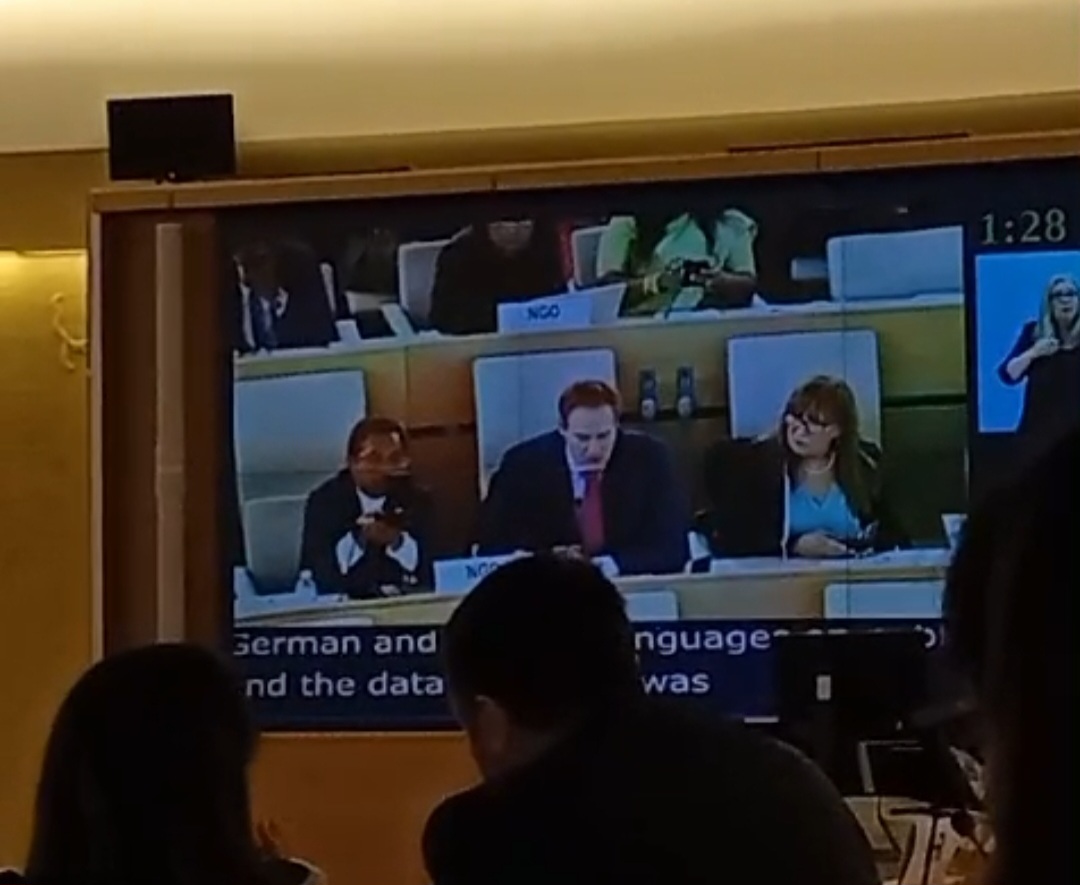On 28 November 2024 at the 17th session of the Forum on Minority Issues at the Palais des Nacions in Geneva, under item two, Minority Representation in Public Spaces, Mr. Zandberg made the following contribution:
I want to provide the Forum with a summary of a 2024 study into the linguistic landscape of Saterland, a municipality in northwestern Germany with a population of 14-thousand people spread out across four villages. Saterland is home to the Sater-Frisian language, which is considered to be the smallest national minority language in Europe, only spoken in one municipality.
The study aimed first to document the presence of the German and Frisian languages on public signs. The data collection was done by photographing 400 public signs and boards along the main roads and its immediate side streets. The results indicate that Frisian is predominantly visible on place-name signs and tourist boards. Frisian is not used in public information boards or destination signs. Furthermore, the study found that 98 percent of the commercial signs in Saterland are in German. This reflects the role of Frisian as a language of cultural heritage rather than active communication.
Sater-Frisian is also absent in the digital environment. No official government or commercial websites use Frisian. Only a handful of volunteer organizations have websites partly in Frisian. One important thing to note is that the central website of the municipality was bilingual (from 26 August 2017) until 21 February 2024. Subsequently, a new, more complex and standardized, website was published and the use of Frisian was abandoned due to the high translation costs. It is a result of Frisian being a low-resource language which lacks a digital model necessary for automatic translation.
Secondly, the study looked at the use of the Sater-Frisian language in the administration of the local government. The data was collected through a survey and an interview among the employees of the municipality. The results show that the Frisian language is limited to informal interactions with citizens and among colleagues who speak the language natively. The Frisian language is completely absent in official communication. Furthermore, 100 percent of the official documents used by the local government are in German. As a result, the Frisian language is only used informally and therefore in practice completely absent from official governance.
